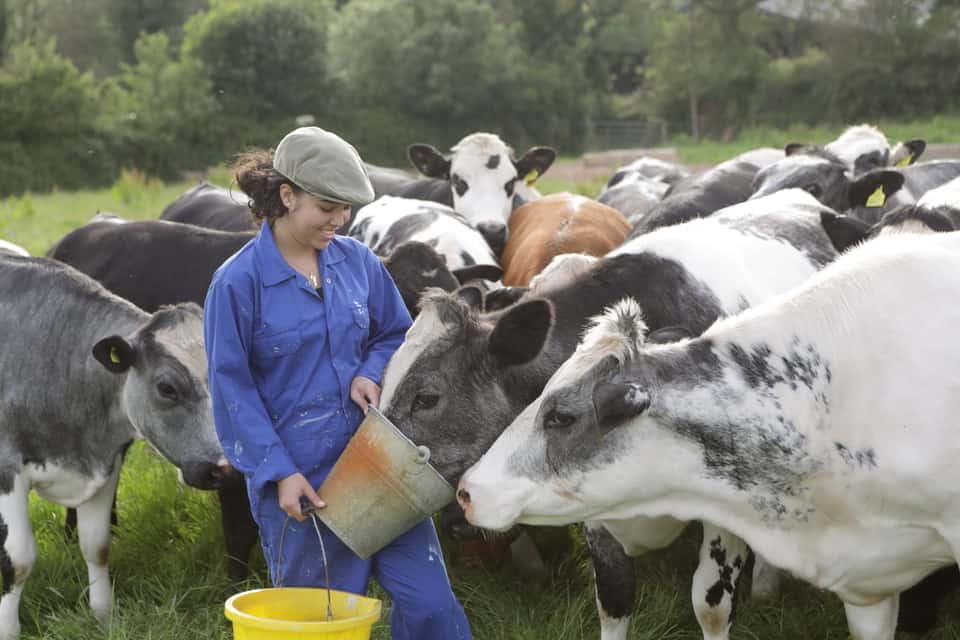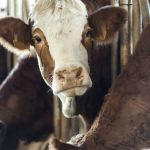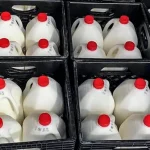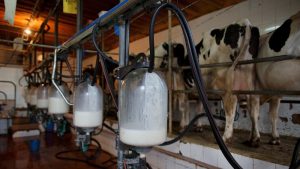
New regulations mean farmers will be able to challenge prices and more easily raise concerns with supply contracts, helping ensure they receive a fair price.
The government has today (11 July) outlined more detail on regulations set to come into force later this year which will ensure supply contracts in the dairy sector are fair and transparent, with farmers being paid a fair price for their produce.
Delivering on a key commitment set out at the Prime Minister’s Farm to Fork Summit earlier this year, the regulations will help establish stability and accountability across the dairy supply chain by enabling farmers to challenge prices, stopping contract changes being imposed on farmers without agreement, and ensuring farmers are able to more easily raise concerns.
The development of the regulations has been supported by detailed discussion with key industry players including the NFU and Dairy UK, and the government has listened to feedback from farmers and processors to ensure the new regulations address previous concerns and provide tailored support for those in the industry.
Farming Minister Mark Spencer said:
Farmers must be paid a fair price for their produce and these regulations will provide price certainty and stability for farmers by establishing written milk purchase agreements with clear and unambiguous terms.
This represents a key milestone in our commitment to promote fairness and transparency across food supply chains to support farmers and build a stronger future for the industry, and will be followed by reviews into the egg and horticulture sector supply chains this Autumn.
The regulations will mean:
- Farmers have clearer pricing terms, with contracts setting out the factors which generate the milk price and allowing farmers to challenge prices if they feel this process isn’t being followed. This is a major advance in transparency, which ensures fairer pricing and addresses historical discrepancies in the dairy industry.
- Changes to contracts can’t be imposed on farmers without their agreement. This will encourage dialogue between the parties where changes do need to be made – improving trust within the supply chain.
- Farmers’ contracts will all include a straightforward way to raise concerns about their contracts, promoting accountability and timely issue resolution.
- There will be clear rules put in place on notice periods and contractual exclusivity, protecting the rights of both buyers and sellers. This will remove any ambiguity from contracts and protect the rights of both buyers and sellers.
- An enforcement mechanism is created to guarantee the regulations are followed, ensuring a fully fair and transparent dairy industry on a solid foundation to thrive in the future.
The upcoming dairy regulations are part of a series of supply chain interventions confirmed by the government at the Farm to Fork Summit. New reviews will also begin this Autumn to help establish fairer supply chains in the eggs and horticulture sectors, and we announced in April that we will also be developing regulations to improve relationships in the UK pig supply chain.
These regulations have been developed using new powers under the Agriculture Act 2020, and there will be continued engagement with industry to ensure that they meet the needs of the sector and properly address the challenges the sector faces.
NFU dairy board chair Michael Oakes said:
These new regulations mark a significant step forward in the government’s efforts to increase fairness and transparency in the dairy supply chain.
For a long time, unfair milk contracts have held British dairy businesses back, and these changes will give dairy farmers much needed business security and confidence, as well as helping to share risk along the dairy supply chain.
This announcement signals that we are on the right path to building a stronger, more resilient future for the British dairy sector. We will continue to work with the government and wider industry to not only benefit farm businesses and the supply chain, but the millions of people who value access to quality, sustainable, nutritious British milk.
A Dairy UK spokesperson said:
Dairy UK has always believed that this regulation should strike the right balance between greater transparency and maintaining the flexibility the industry needs to compete in a volatile and increasingly competitive marketplace.
We’ve appreciated the engagement provided by Defra during the development of the regulation. We look forward to seeing the final SI and to continuing to work with Defra on the implementation of the regulation.
The regulations form part of the government’s wider strategy to grow a thriving British food and drink sector which will put more British produce on supermarket shelves in the UK and around the world.
It comes alongside wider support for the agricultural sector, with £2.4 billion per year being invested in farming for the rest of this Parliament. This includes support for farmers through our new environmental land management schemes, with an expanded and improved Sustainable Farming Incentive 2023 offer announced last month, as well as enabling the sector to harness new opportunities for the development of automatic and robotic technologies on farms as part of our £270 million Farming Innovation Programme.























